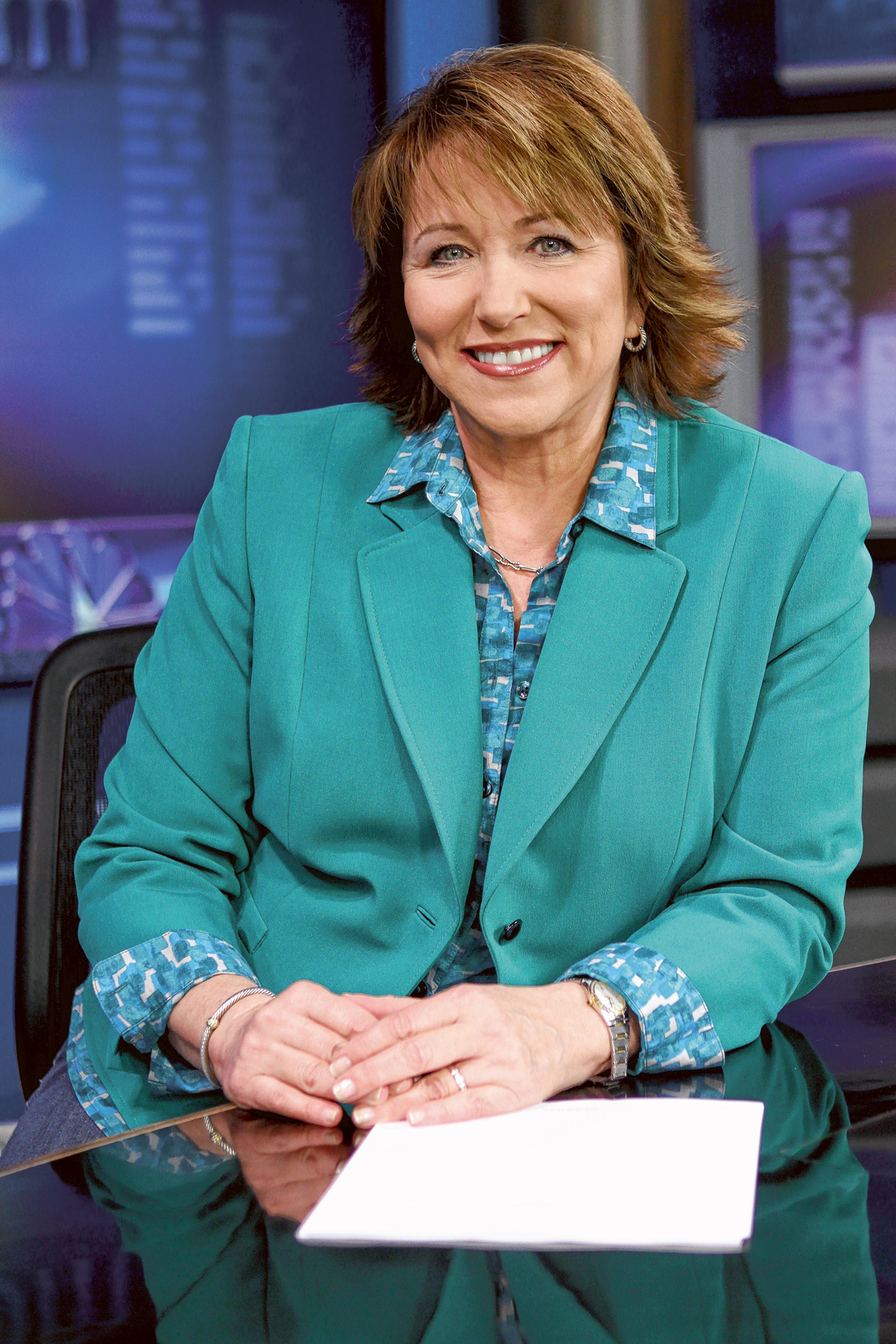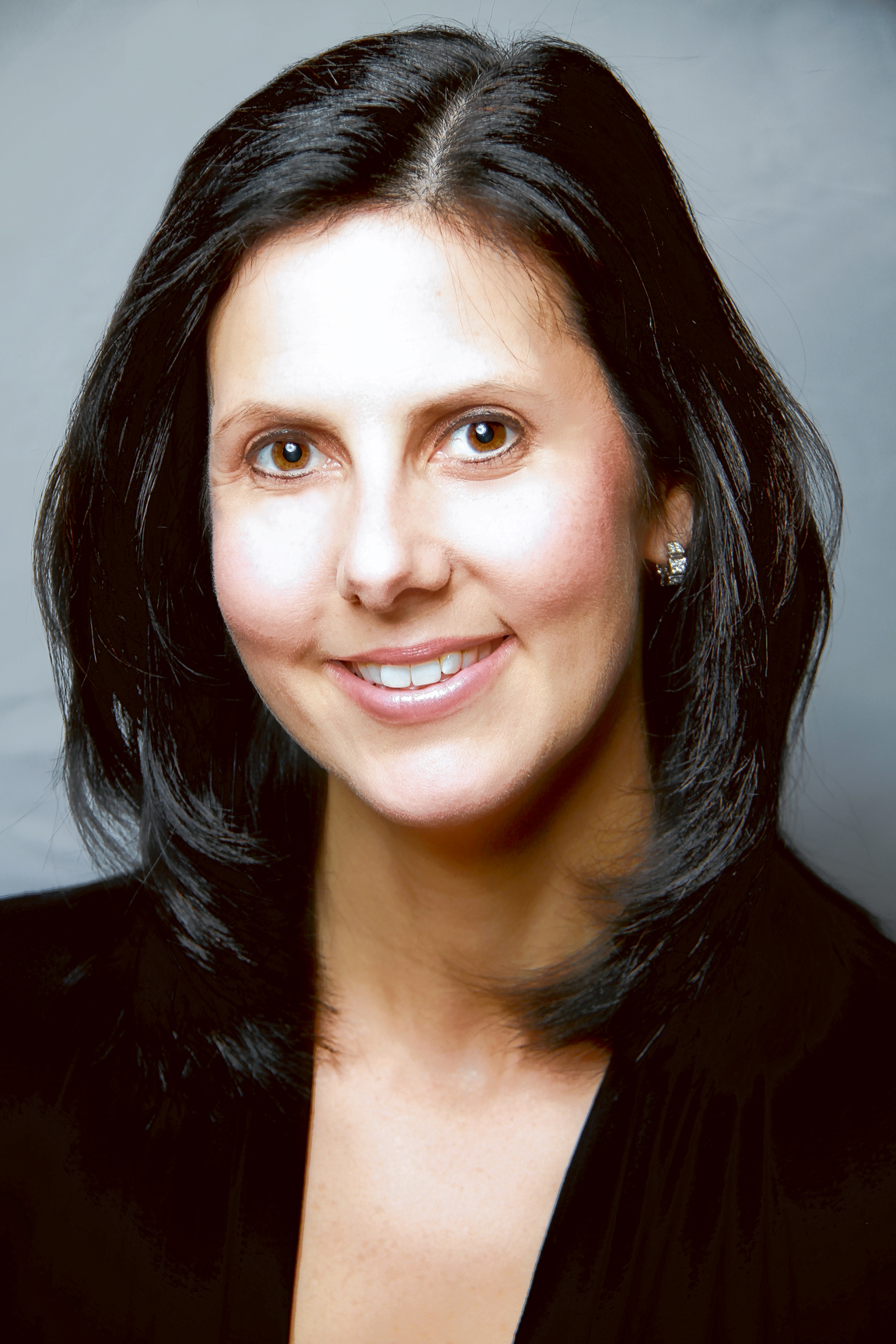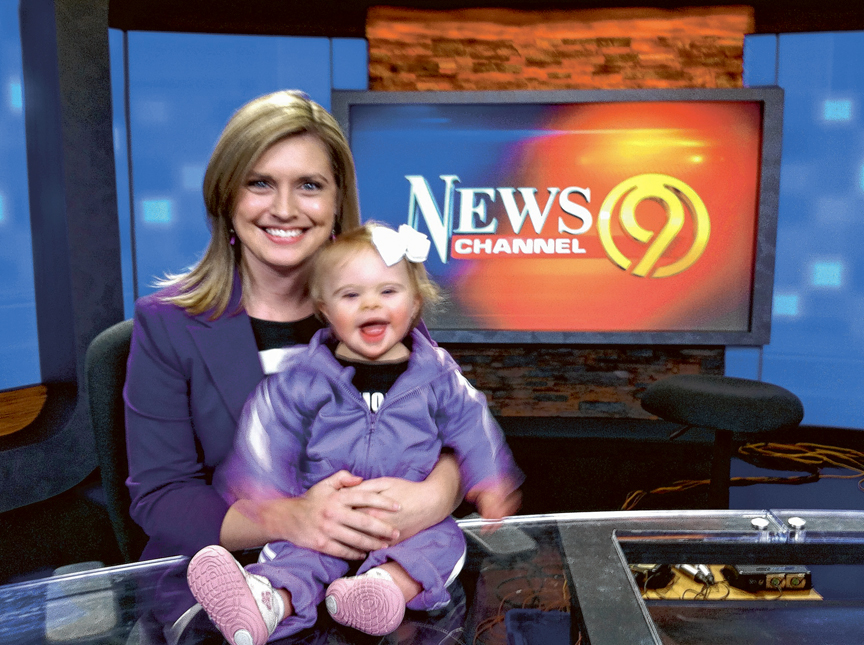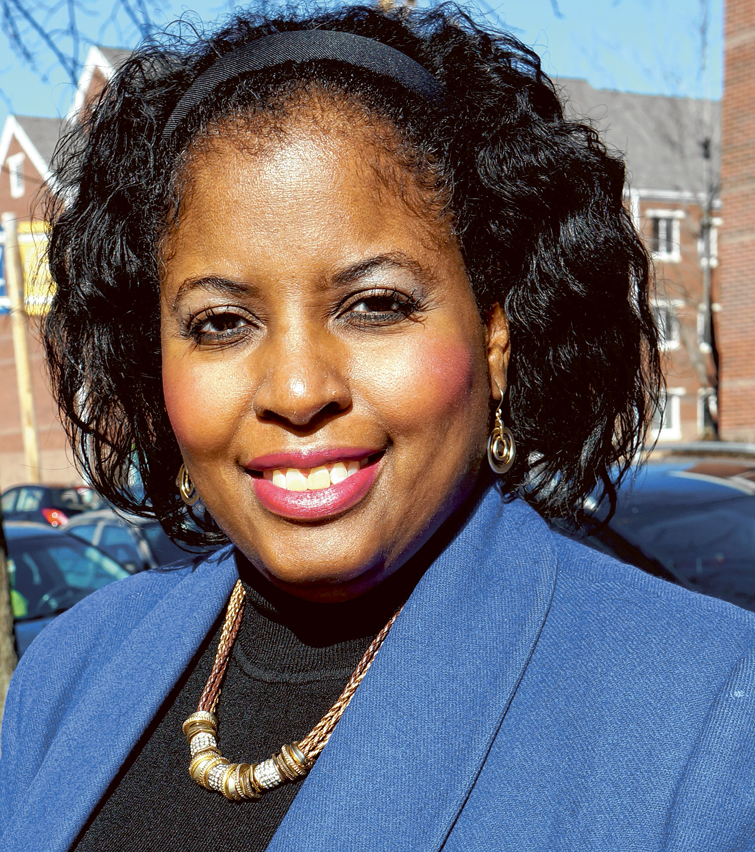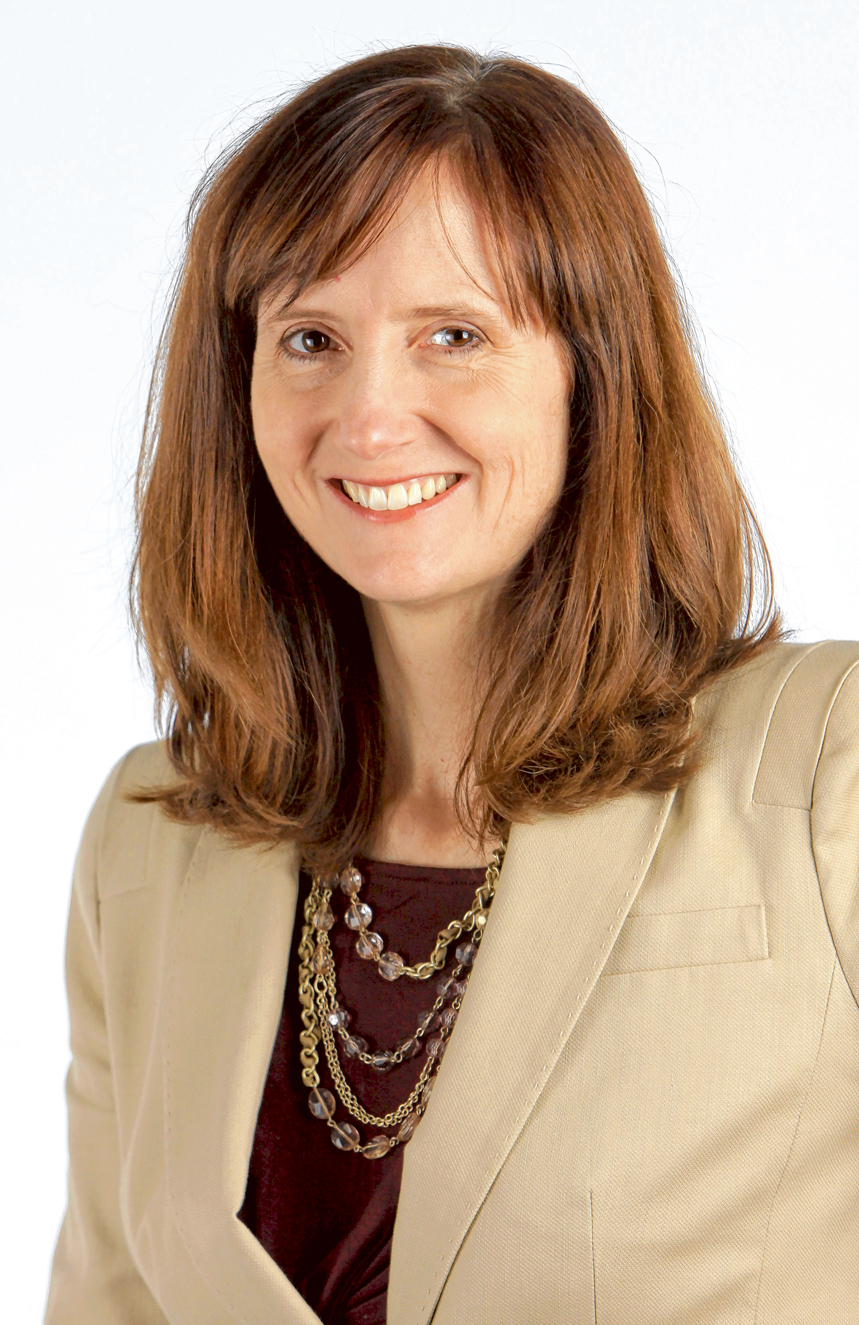Women in the media have come a long way since the 1970s when Barbara Walters made headlines by becoming the first woman on any network news or public affairs program to earn the title of "co-host."
Taking the lead from Walters and others like Connie Chung and Diane Sawyer, women have pushed through the glass ceiling of the media world- telling the stories that need to be told, letting nothing stand in their way.
Although great strides have been made by courageous women to level the playing field between the sexes in the industry, studies still show that women are trailing a step behind in terms of equality. We looked to several notable media mavens in Chattanooga to get their views on life in the profession, and how-if at all-our city is lagging behind.
CINDY SEXTON
News Anchor/Reporter, WRCB -TV Channel 3
Years in the media industry: 34
Family: Husband, Gil Gilbert, and daughter Gracie Gilbert, 15.
What was your journey to get to the job you have now?
My first anchor job was at the CBS affiliate in Huntsville, sharing the anchor desk with Bill Markham. In 1983, he came to Channel 3, and six months later I went to KLAS in Las Vegas. Gil and I were newlyweds and really missed this part of the country. When a co-anchor position came open here, Bill called and we were so happy to move to Chattanooga.
Did you always want to work in the media field?
I became interested when I was in graduate school at Murray State University. I was working on my master's degree in communication theory and after planning to teach high school, had a change of heart. I took a class in TV news reporting and never looked back.
Did Connie Chung's game-changing career have any bearing on you getting into the media field?
I was already in the business when I became familiar with Connie. I admire her work and appreciate her and the other women who blazed the trails. When I started in 1980 as a reporter and bureau chief in Paducah, Kentucky, I didn't know any women in the industry who were over 40. At the time, I think most TV executives expected onair women to be young and pretty. While there is still some expectation of that, I think it's more important to viewers to know they can trust us to get the facts right.
The Status of Women in the Media 2013 report states that, "An avalanche of new surveys, studies and reports point to stubborn gender inequality in the ways that women are employed and represented in news, entertainment and technology- related media." Do you agree? What will it take to change this?
In some places, perhaps that is the case. In our newsroom, we have an almost all-female producing staff. Right now it's 6-to-1. We've had more male reporters at some times and more female reporters at others. I don't think there is gender inequality here. Overall in our industry, women are outnumbered in executive positions, but I'm optimistic that is changing.
What has it been like for you personally as a woman working in the media industry?
My experience has been positive. I have never felt like I received less respect than my male co-anchors and as far as I know salaries have also been equitable.
How do you find a balance between work life and home life?
It's a cliché, but I have to take it day by day. I'm not sure anyone really succeeds at that balance.
Do you have any advice for women looking for a career in the media or another demanding career?
Know what you want and don't compromise. Find your purpose. Decide what's important to you. If you want a family and a career, you may have to get creative to do both well, or you may have to do different things at different times in your life.
Alison Goldstein Lebovitz
Host of The A List with Alison Lebovitz (WTCI/PBS) and columnist for Tennessee Valley Parents Magazine
Years in the media industry: 18 years as a columnist and 6 years at WTCI/PBS
Family: Husband, Alan Lebovitz, and children, Arthur, 13, Abe, 11, and Levi, 9.
What was your journey to get to the job you have now?
My career as a columnist began when I started writing a humor column for a local paper in Atlanta called Insite Magazine. I moved to Chattanooga a year later, after marrying Alan Lebovitz, and got a job working for Johnson Waterhouse Public Relations. While my television career path was both unplanned and unconventional, I credit two people for making it happen- my husband Alan and WTCI president Paul Grove. Over dinner with the Groves in early 2008, Alan (jokingly) asked Paul when he was going to give me my own show and Paul actually thought it was a great idea. Paul has always been dedicated to community programming and wanted WTCI to produce a local 30-minute interview program. He asked if I would consider being the host. The A List with Alison Lebovitz was then born and first aired in 2009. Five years and more than 60 episodes later we are proud to be entering our sixth season.
What has it been like for you personally as a woman working in the media industry?
Personally, as a woman in the media, I do not feel or see any of the gender biases that might exist in other fields or in other markets. I am fortunate to have role models such as Gwenn Ifill and Judy Woodruff on the national PBS level who prove that professional paths can and should be dictated by talent and not gender. I am also lucky to work with a visionary leader like Paul Grove who believes in nurturing that talent in ways that benefit both our station and the community we serve. Plus, I am surrounded by incredibly creative, motivated and talented men and women at WTCI, including my producer, Emily Compton, who love their jobs and are wholly dedicated to enriching lives through quality programs and services that educate, engage and inspire a lifetime of learning and exploration.
What has been your proudest professional moment?
Professionally, two of my proudest moments have been interviewing documentary filmmaker Ken Burns and Coach Pat Summitt. They are both legends in their fields, but also such genuine, down to earth and kind souls. Ken Burns opened up on a very personal level and felt like an old friend, while Coach Summitt taught me how to master her infamous "look," which I have been practicing on my children ever since. Both reminded me that excellence is achieved through focus, hard work and following your passion. Of course, my third proudest moment was learning how to beatbox with Matisyahu.
Do you have any advice for women looking for a career in the media or another demanding career?
If I have learned one lesson through my journey so far it is that relationships are the key to success. The people I have met both professionally and personally are the people who have become the fabric of my life. I can attribute every success, accomplishment and milestone in my life and career to someone else who helped me or encouraged me along the way. And I am committed to paying that kindness forward, so I make a concerted effort to always help others, especially young people, who might need advice, guidance or assistance.
What takes up your time when you aren't working?
In my "spare" time I am also president of a nonprofit called One Clip at a Time. It is an organization inspired by "The Paper Clips Project" started in Whitwell, Tennessee that promotes student activism and supports service learning in classrooms across North America. I sit on numerous nonprofit boards, including the Jewish Federation of Greater Chattanooga, Lyndhurst Foundation, Tennessee Aquarium, Read20, Jordan Thomas Foundation and United Way of Greater Chattanooga, and I appreciate that Chattanooga is such a philanthropic community that truly values service and volunteerism. I also love reading and going to the movies every chance I get.
Latricia Thomas
News Anchor, WTVC NewsChannel 9
Years in the media industry: 10
Family: Husband, Charlie Milburn, and daughter, Lila, 2.
Did you always want to be in the media field?
I don't remember having one of those "ah-ha" moments where I knew that television was the career for me. I do remember my dad being enthralled with the news, both national and local, when I was a little girl. He was constantly learning about what was going on in the world, which made me value the curiosity and compassion that comes from hearing the stories of other people's lives.
The Status of Women in the Media 2013 report states that, "An avalanche of new surveys, studies and reports point to stubborn gender inequality in the ways that women are employed and represented in news, entertainment and technology- related media." Do you agree? What will it take to change this?
That report also found that the percentage of female news directors has climbed, reaching 30 percent for the first time. Does gender inequality still exist? Absolutely. I would venture to say this is the case in every sector of business. I'm encouraged, though, that in local television news, more women are finding their way to positions that influence coverage and hiring decisions. I've worked for female general managers, news directors, assistant news directors and executive producers. I think showing the next generation of television "newsies" that having valuable women in those leadership roles is a rule and not an exception will help us take the next step.
The gender lag in media remains a reality in 2013, in both traditional and new media. How long do you think it will take before women catch up?
In local television news, there is no shortage of young, female reporters. They are ambitious and anxious to make their mark in this business. Very soon, we all learn that this is both a very rewarding and a very taxing job. Phone calls in the middle of the night, holidays that don't always mean a day off and very long hours in some of the worst weather conditions are harder to swallow when you have a young one at home with a bedtime that doesn't change when news breaks. So "catching up" may not be every woman's first choice. But more men are choosing to make those sacrifices, too. Finding that balance is probably the biggest challenge we all face as parents with demanding jobs.
As a woman in the media industry, do you feel you've had to work harder to prove your journalistic merit?
When I worked as a reporter in Albany, New York for three years, a day didn't go by when I wasn't referred to as "the young Southern girl" outside of the newsroom. Did those 30-year lawmakers think I couldn't keep up with some of the veteran male reporters? Probably. Did I let it keep me from asking tough questions? Absolutely not. When the New York State Senate Majority Leader put his arm around me and mistook me for a new teacher during a media availability on education reform, my face may have been a little red, but I didn't slink back in the crowd of press behind me. I cracked a joke that made sure he remembered my name the next time.
What has been your proudest professional moment?
My, has that ever changed in the last two years! Three hours after my daughter Lila was born, the hospital staff told us she probably had Down syndrome. At that moment, a photographer was sitting outside my hospital room waiting to shoot video of her for our newscast. During those first days, I was scared of her diagnosis in a lot of ways. But I believe that Lila was given to me for so many reasons, and one of those is to show the Chattanooga area, including our viewers, how wonderful our lives are even with a few added challenges. And I couldn't be more proud of anything else.
Do you have any advice for women looking for a career in the media or another demanding career?
Don't do it if you just want to see yourself on TV. Do it because you want to tell those stories that don't always get to be told. Do it because you want to be an advocate for those who can't always find justice on their own. Do it because you can't imagine yourself doing anything else.
Felicia McGhee
Assistant Professor of Communication at UTC
Years in the media industry: 17
Family: Son, Thomas, age 11
Did Connie Chung's game-changing career have any bearing on you getting into the media field?
Yes, definitely! I have watched Connie Chung for years. She helped open the door for women of color. Often, when you are "the first," your work serves as an example for up-and-coming reporters and that's exactly what she did for me. When I was a child my parents often told me the sky was the limit and watching her news reports only solidified that in regards to broadcast journalism.
The Status of Women in the Media 2013 report states that, "An avalanche of new surveys, studies and reports point to stubborn gender inequality in the ways that women are employed and represented in news, entertainment and technology- related media." Do you agree? What will it take to change this?
I can believe the results of that survey. It is extremely hard for women to have long careers in the media because of the demands that come with the job. I feel that as we progress in our careers it's up to us (seasoned female journalists) to demand changes, such as hiring more women and people of color in the newsroom. Change will not take place if we don't force the issue.
The gender lag in media remains a reality in 2013, in both traditional and new media. How long do you think it will take before women catch up?
I think that we are making strides but again it takes time. Just recently we witnessed our first female CEO in the auto-manufacturing industry so I think it will come. As an assistant professor in the Communication Department at UTC, we are seeing more and more women interested in communication and I think that's a good thing. In the future I believe we will see even more women in media-related fields.
How was it for you personally as a woman working in the media industry?
Overall I've had a good experience. Of course as you get older and start raising a family your priorities tend to change and that is what happened to me. I took some time off from reporting at WTVC-NewsChannel9 when I had my son, but eventually I worked my way back. It is difficult to be a working mom and full-time journalist, which is one of the reasons why I am at the University of Tennessee-Chattanooga. Fortunately, my current position at the university allows me to still work in broadcast news from time to time.
Do you feel you had to work harder to prove your journalistic merit?
I remember that when I first started out in news the male journalists would always get more of the hard-hitting stories. I must admit that my learning curve was extremely high during that time and I was not the best reporter. Eventually I learned better storytelling techniques and was assigned more "A" block stories. I vividly remember my first female news director, Barbara Kidd at WTOK in Meridian, Mississippi, saying to me, "Felicia, you have just got to get out there and do it!"
Alison Gerber
Editor and Director of Content for Chattanooga Times Free Press
Years in the media industry: 18
Family: Husband, Jimmy Espy, and daughter, Rowan, 8
The Status of Women in the Media 2013 report states that, "An avalanche of new surveys, studies and reports point to stubborn gender inequality in the ways that women are employed and represented in news, entertainment and technology- related media." Do you agree? What will it take to change this?
Gender inequality does exist-but not everywhere. There still are companies and leaders who are gender blind and recruit and reward talent. My advice to young women is to find those people and work for them. The gender lag in media remains a reality in 2013, in both traditional and new media.
How long do you think it will take before women catch up?
The gender lag exists in many industries, not just media. Unfortunately, too many times women do not appreciate their value to an organization and are uncomfortable asking for equity. But I have an 8-year-old daughter, and I believe by the time she enters the workforce, we will no longer be having this conversation.
What has it been like for you personally as a woman working in the media industry?
I never thought about my gender in relation to how I did my job. A good journalist is curious, fair, accurate and passionate about telling stories that make a difference, whether male or female.
What has been your proudest professional moment?
Throughout my nearly two decades in journalism, I've had many moments that have made me proud. Being entrusted with leading a newsroom at the Times Free Press was one of those. And when readers engage with the paper's stories and photos and editorials, that is the greatest reward and makes me really proud.
How do you find a balance between work life and home life?
Not very well. The news business is 24/7. Internet and social media demands have only increased pressures on journalists. Finding work/ family harmony is a weekly challenge.
Do you have any advice for women looking for a career in the media or another demanding career?
This is a great field for someone who never wants to be bored. Every day is different and challenging and fast paced. But if you want a typical 9 to 5 existence, look for another profession. You have to know going in that this is a demanding field and be willing to commit to do the job well.
What takes up your time when you aren't working?
I spend time with my husband and daughter, go running with my dog, cook and bake a lot, and work in the garden.

